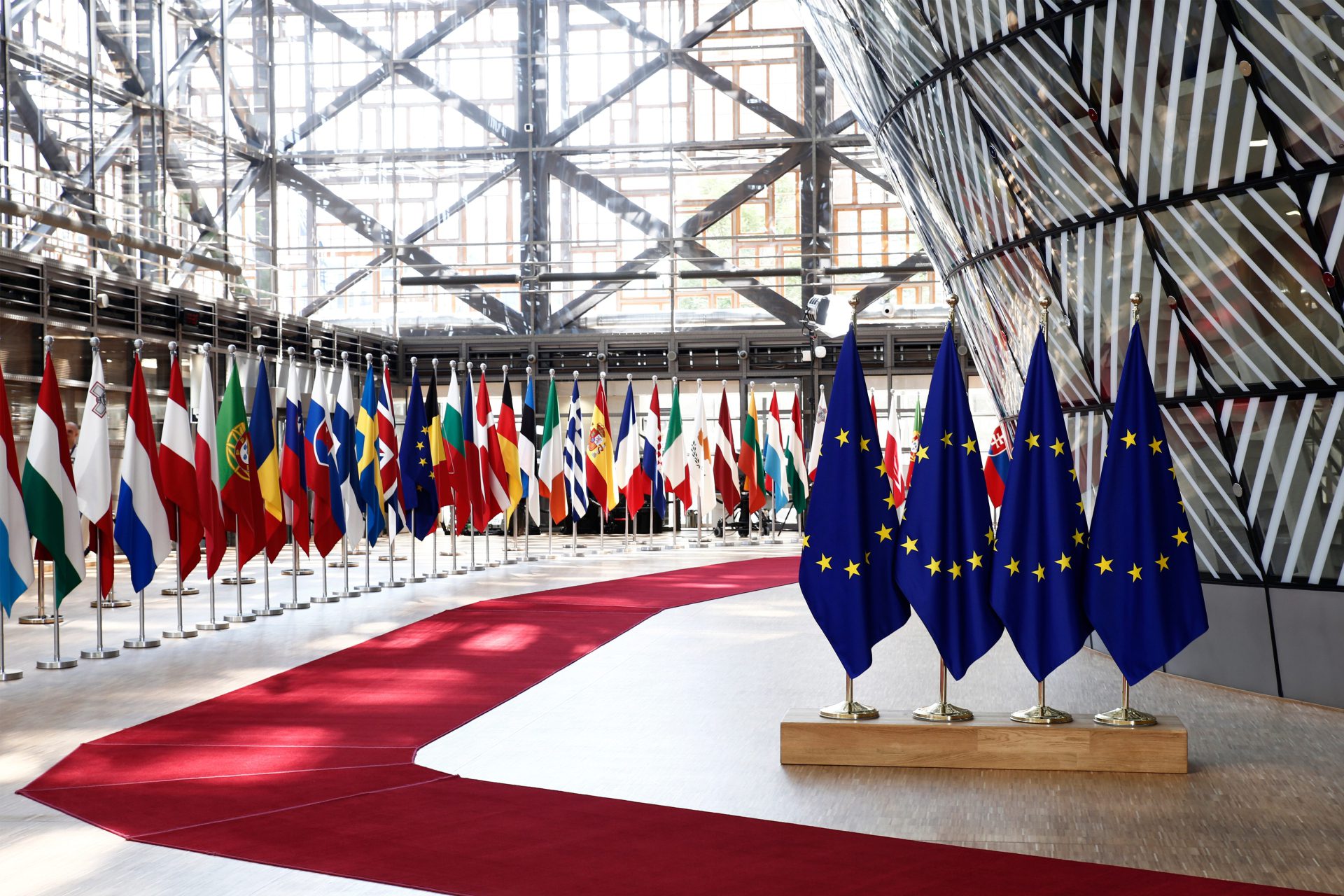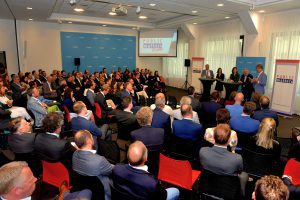Led by the Organisation for Economic Co-operation and Development (OECD), 136 countries that together represent about 90 percent of the total global economy reached an agreement on reforming the international tax system (the “OECD agreement”) in October 2021 after years of negotiations. Among other things, the countries – including the Netherlands – agreed that large multinationals will pay at least 15 percent profit tax, regardless of the country in which they are based. Although politicians indicated that they wanted to implement this agreement quickly, progress is currently faltering staggering on all sides.
This blog outlines what has happened since October 2021. Furthermore, it examines the most recent policy developments and their implications. Can we expect any changes soon, or will the ambitious OECD agreement fizzle out?
An important milestone
The OECD is a socio-economic partnership of almost 40 countries, including the Netherlands. Together with the G20, the OECD has established the so-called OECD/G20 “Inclusive Framework on BEPS” (“Inclusive Framework”). This consists of more than 135 countries and jurisdictions to encourage cooperation on “Base Erosion and Profit Shifting” (“BEPS”). Among other things, this focuses on tax avoidance, international tax rules and transparency.
Until recently, one issue remained unaddressed: a solution to the challenges that the ever-increasing digitalization of the global economy poses to the taxation of multinational companies. Think of digital companies doing business from a distance. While the reform was originally aimed specifically at companies operating in the digital economy, the final agreement is generically designed and relevant to all companies of significant size. The agreement is based on two separate pillars, with the ambition of implementing both pillars in 2023, each with its own objective:
- Pillar 1 regulates a different distribution of profits and tax rights between countries for multinationals. The aim is for countries where these multinationals have customers or users to be able to levy taxes. Even if the multinational has no physical presence in the countries concerned (such as digital companies). Proposals for the implementation of this pillar are still awaited, postponing the implementation date to at least 2024, as the OECD is still in the process of drafting model rules.
- Pillar 2 introduces a global minimum tax rate of 15 percent for multinational companies with annual sales of 750 million euros or more. On December 20, 2021, the OECD published model rules for implementation of this pillar and is therefore the part that has been discussed in recent months with regard to implementation.
Cabinet Rutte IV wants to get rid of the image of the Netherlands being a tax haven
The Netherlands is positive about the tax reforms. According to Marnix van Rij, State Secretary for Finance and responsible for Fiscal Affairs and the Tax Administration, the Netherlands is currently making efforts within the Inclusive Framework to develop and implement Pillar 1. In addition, the current cabinet wants to take away the image of the Netherlands as a tax haven and take a leading role within the EU in tackling tax avoidance. The cabinet is committed to the successful introduction of the minimum tax rate. However, several political parties, including the CDA (Christian Democrats), VVD (Liberal Conservatives) and GroenLinks (Greens), expressed their concerns about the financial consequences and the effects on the regulatory burden for businesses and the Tax Authorities, among others. The CDA questioned for example the complexity of the proposal and the feasibility of the timeline. Nevertheless, a majority in the House of Representatives supports the importance of the proposal, also in view of its cross-border nature.
European quarrels: still no agreement on Pillar 2
On December 22, 2021, the European Commission published the draft Directive for the introduction of the minimum tax, the second pillar. France, which took over the Presidency of the Council of the European Union from Slovenia on January 1, 2022, included this as one of its policy priorities. However, an agreement on tax legislation is subject to the principle of unanimity. This principle means that unanimity is required in the area of tax legislation, but also for decisions on foreign policy and EU membership. Therefore, in this case, the unanimous agreement of all 27 EU Member States is required.
After Budapest, Tallinn and Stockholm agreed to the EU proposal after some adjustments, including a change in the implementation date of Pillar 2 to 31 December 2023, only Warsaw still opposed. The reason for this refusal was not so much the plans regarding Pillar 2, but rather that Brussels had refused to approve the Polish COVID-19 recovery plan. When concessions were made in early June, the Polish Minister of Finance, Magdalena Rzeczkowska, also withdrew her veto.
Just when an agreement was on the table, a few minutes later Hungary unexpectedly and to the great displeasure of the other Member States, used its veto, where previously no objections had been raised. Budapest has been at odds with Brussels for years over a rule of law dispute. The Dutch Finance Minister, Sigrid Kaag, called Hungary’s action “remarkable.” Prime Minister Rutte also complained about the sudden resistance. To put it diplomatically: patience with Hungary is running out.
Whatever Hungary’s intentions may be, for the time being, it will probably not succeed in luring the EU into a successful compromise as Poland did. ‘Brussels’ saw advantages in a rapprochement with Poland, given the country’s economic and security issues as a result of the war in Ukraine. That compromise led to outrage in the Commission itself – two vice presidents voted against it – and to critical questions from the European Parliament and Member States. This makes it unlikely that the Commission will compromise with Hungary – a country that is even more deficient in the rule of law and regularly obstructive when it comes to European policymaking.
Reform is still a long way off
Partly due to the blockades by Poland and Hungary, the discussion on the principle of unanimity and the right of veto on tax legislation within the EU has flared up again. The European Commission wants to change decision-making to qualified majority voting for non-controversial legislation regarding tax policies, such as administrative cooperation and the fight against tax fraud and avoidance. However: to change this, consensus is also needed. For instance, the Netherlands is currently not in favour of abolishing the unanimity rule for fiscal policy.
Meanwhile, on the other side of the ocean, an agreement on taxes, climate, and health care (the so-called “Inflation Reduction Act”) was being negotiated in the US Senate. The blockade of Hungary was greeted with applause by the Republicans. Eventually, the “Manchin-Schumer Deal” was reached, including compromise legislation on the minimum profits tax. One problem: the proposed minimum tax incorporated into the Manchin-Schumer deal is not consistent with the OECD agreement. With all the implications for an uneven playing field. This creates the risk of other countries withdrawing from the OECD agreements. It has also led to concerns that multinationals will face a web of complex and inconsistent tax regulations.
All in all, it seems that real reform is still far ahead of us. The success of the new legislation will largely depend on how the plans are worked out: the tax devil is in the details. Pillar 2 appears to be a tough process, while Pillar 1 has yet to follow. Either way, the reform will require intensive multilateral cooperation and great commitment from multinational corporations. The political struggles, the technical details and the consequences for the regulatory burden make this an extremely complex project.
Public Matters advises companies and other organizations that are indirectly / directly affected by the impact of the reform of the (international) tax system and other tax legislation. Please check this page for more information or contact us.















